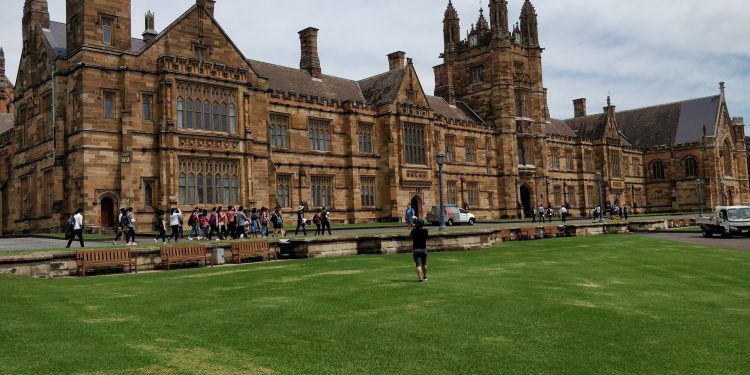Revenue shortfall in Australian universities may lead to further job cuts and program closures.
NRI Affairs Correspondent
Image by vincent1024 from Pixabay
There is no additional funding for the higher education or the university sector, despite considerable spending by the treasurer, according to Dr Pradeep Taneja, who lectures in Chinese politics, political economy and international relations at the University of Melbourne, where he is also a Member of the Centre for Contemporary Chinese Studies and a Fellow of the Australia India Institute.
Dr Taneja, who also holds a PhD in Chinese political economy, said, “Last year universities suffered a revenue shortfall of about $1.8 billion and this year in 2021 it’s going to be more than $2 billion and the treasurer is not really doing anything to compensate the universities. Many of the universities have already laid off staff, both academic and professional staff, and this trend is probably likely to continue this year. The loss of academic staff, researchers and good academics is a loss to knowledge generation in Australia. We want Australia to become a knowledge intensive industry – to create high value jobs, and for that the government needs to support the higher education sector.”
Not much the universities
“In the October 2020 budget, there was about a billion dollars for the University for research and that was good, that was welcome, because it allowed universities to retain some good researchers. That was additional $1 billion in the October. But this budget doesn’t offer much the universities. The elite universities may be okay but the smaller universities and regional universities would find it difficult to make ends meet, and we could see more people being laid off by smaller universities in the next few months. That’s not good news for public universities in this country, with some programs being closed as well.”, Dr Taneja said.
“Remember that universities are where many of the migrants first come. If you look at the Indian migrants in Australia, a large proportion of them came initially to study in University or vocational – TAFE and other colleges, and then many of them end up getting permanent residency and they are now contributing to the Australian economy. They have jobs, they work hard and they pay their taxes. So, if the university sector is going to suffer because of travel restrictions, and generally the overall effect of the pandemic, it is going to affect Australia’s productivity in the long run because Australia should be really pulling its weight in terms of intellectual property rights generation in terms of research, and if the universities are going to lose very talented people or not able to hire people with high level skills and good academic backgrounds in research positions, how are they actually going to contribute to Australia’s knowledge generation? From that point of view, I think the budget really doesn’t offer much.”, according to Dr Taneja.
Employment pathways for students
However, he said that there were other things in the budget that he thought would help some people, “for example is small amount I think $1.1 million over 2 years for employment pathways for students and that should help some students particularly in PhDs and industry focused fields, and there is also another $54 million for the global science and technology diplomacy fund which will help in universities to engage with universities in other countries and I think India could be one of the beneficiaries of this where Australian University want to work with other countries they could tap into this $54 million to develop collaborative research linkages with universities in other countries and if Indian universities, and Indian origin academics in Australia, if they take the initiative they could actually get a share of that money that’s something which will benefit.”, Dr Taneja said.
“Even though there is no real direct additional funding for the universities, some of the other schemes which the government said they’ll fund should benefit educational institutions both universities and vocational education, and therefore I think migrant workers should be able to benefit from it, because remember that many migrants when they come to a country like Australia they want to upgrade their skills so that they are more employable in Australia, and I think this additional funding, I think there was $216 million over 3 years for upskilling age-care workforce and age-care workforce includes nursing and other services and that should also be, I think, helpful for migrant workers.”
Huge deficit. No money for migrants and Australia-India Institute.
Dr Taneja was concerned that the deficit will take generations to be paid off. He said, “I think there was $216 million over 3 years for upskilling age-care workforce and age-care workforce includes nursing and other services and that should also be, I think, helpful for migrant workers. So overall I think a very expansionary budget. A lot of money being spent and it will create a huge deficit which I think future generations will be paying for a long time, but nothing really much either directly for migrants or for the universities. I haven’t seen anything in the budget (for South Asia). I was looking forward to some further commitment to, for example, the Australia India Institute because Australia India Institute which was initially founded in 2009 by the Labour Government, with nearly $9 million dollars and it was also supported by the state government. They haven’t seen any additional funding for the Australia India Institute. It would have been good if the government had actually committed to growing the role of the Australian-India Institute, but there is nothing in the budget.”











